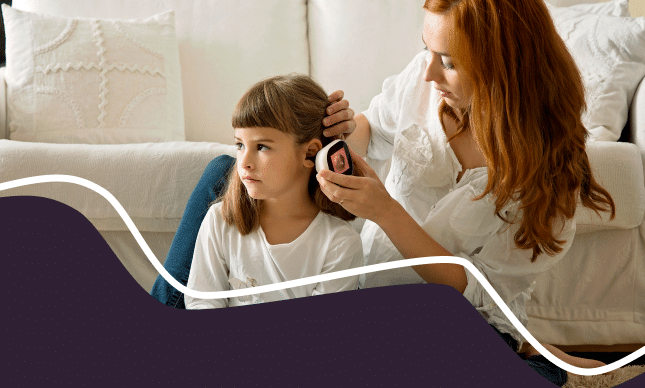Behavioral Science: Increasing Member Engagement in your Digital Offering
Join Richard Mathera, Managing Director at Irrational Labs, and Hagai Heshes, Head of Product Marketing at TytoCare, as they discuss the role of behavioral design in creating digital solutions with high adoption and engagement rates across different populations.
Speakers

Richard Mathera
Managing Director


Hagai Heshes
Head of Product Marketing

Healthcare insurers are increasingly moving to virtual-first and hybrid offerings. For these programs to succeed, member adoption will be important.
This webinar focuses was on increasing member engagement in digital offerings, specifically in the context of healthcare. The discussion covered the role of behavioral science in user engagement, the shift towards digital healthcare, and the specific challenges and strategies involved in building out digital health plans.
Key insights:
- Small changes in product design, informed by behavioral science, can have a big impact on user behavior.
- People generally do what’s easiest and most attractive, and changing their environment can influence their behavior.
- Building trust is crucial in healthcare, especially in digital offerings. This can be achieved through continuity of care, trusted providers, and accurate diagnosis.
- The shift towards digital healthcare has brought about new challenges, including changing users’ mental models of how they engage with healthcare.
- Monetary incentives can be successful in motivating one-time actions but may not be a sustainable solution for long-term behavior change.
- AI is already being incorporated in TytoCare’s solutions to provide guidance for users and support for providers.
The key to successful utilization of digital healthcare is understanding and changing consumer behavior
Healthcare providers and insurers aiming to enhance member engagement and utilization of digital healthcare offerings need to understand and leverage behavioral science principles. Richard Mathera, a Managing Director at Irrational Labs, emphasized the importance of understanding the key behaviors and psychologies influencing consumers’ decision-making processes in the healthcare context. “Behavioral design incorporates the fundamentals of behavioral economics into design,” Mathera explained. He pointed out that small changes can have a significant impact, people often do what’s easiest and most attractive, and it’s crucial to realize that people won’t always understand why they do something. Richard also highlighted the importance of understanding the consumer journey and identifying key behaviors and psychologies at each step. “We look at evaluating the product and the environment, sort of step by step,” he said.The reality is the behavioral economics, behavioral science exist in part because what we call the intention action gap. And this is the difference between what someone might want to do and then what they actually do.

Richard Mathea
Managing Director
Building trust and ensuring continuity of care are crucial factors for successful digital healthcare offerings
Hagai Heshes, the Head of Product Marketing at TytoCare, suggested that digital healthcare offerings need to establish trust and ensure continuity of care to be truly successful. According to Heshes, the adoption gap in virtual care is often due to the lack of trust and continuity. “Health care needs the human touch healthcare needs trust,” he explained. “And that trust can be achieved with what we think, what I think is three vectors. One is continuity of care. The other one is that doctor, the provider that is seeing me online, Is it trusted? Is it branded? Maybe it’s my PCP?”Healthcare needs the human touch, healthcare needs trust. And that trust can be achieved with what we think, what I think is two vectors. One is continuity of care. The other one is that doctor, the provider that, is seeing me online, is it trusted?

Hagai Heshes
Head of Product Marketing
The use of behavioral science can significantly improve engagement and effectiveness of digital healthcare plans
The application of behavioral science in the design and implementation of digital healthcare plans can significantly improve user engagement and the overall effectiveness of the plans. This was demonstrated by the work done by Irrational Labs in collaboration with TytoCare, where they identified key behavioral insights and generated solutions to optimize user engagement. “We’ve been able to work with Hagai and the team and go through the behavioral diagnosis process, understand where the psychologies, where some behavioral elements are maybe in need of intervention and then building in behavioral science along the way,” Mathera explained.Digital healthcare offerings need to consider different user cohorts and ensure accessibility for all
When designing digital healthcare offerings, it’s essential to take into account the needs and behaviors of different user cohorts, and ensure the product is accessible to all, regardless of their technological proficiency or physical abilities. Both Mathera and Heshes reinforced the importance of tailoring the user journey to specific cohorts and incorporating accessibility features into the product design. “In terms of accessibility, that’s another element that we’ve really tried to be really thoughtful about in terms of how can we make design a device that’s focused on the user’s ability to do it and set it up and use it,” said Mathera.The crux of behavioral science is understanding, you know, can we create a product that anyone can use, that anyone can set up, understanding the actual fail points where they might not be able to, initially figure it out and then solve for that.

Richard Mathea
Managing Director
Learn more
Blog

Better Healthcare Access and Quality, Lowered Costs
Ensuring access to quality healthcare is an ongoing and expensive challenge for health plans. Virtual care has the potential to improve healthcare access and quality while lowering costs. TytoCare works with commercial health plans across the US. TytoCare leverages advanced technology and a member-centric approach to make healthcare more affordable, convenient, and accessible. Enhancing patient […]


